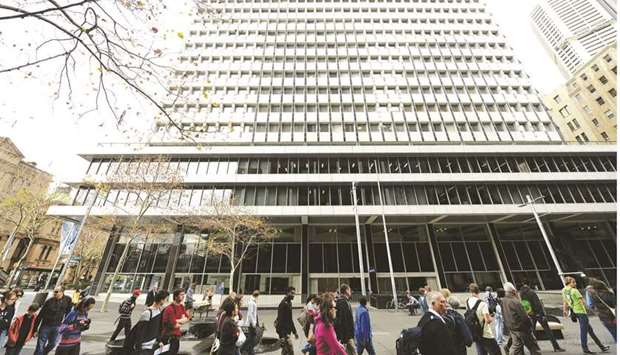The Reserve Bank of Australia (RBA) doubled down on bond purchases yesterday, spurring the biggest drop in yields in a year as policymakers around the world seek to check runaway bets on reflation.
The central bank announced plans to buy more than $3bn of longer-dated securities, following up on a surprise boost in purchases of shorter-maturity debt at the end of last week. Japanese government bonds also advanced while those in New Zealand surged in the wake of an about-face in the American market on Friday.
As the global trading day shifts west, yields on German bunds look primed to decline, with attention also turning to bond-buying figures from the European Central Bank.
Markets are also awaiting more from key global leaders this week, including Federal Reserve chair Jerome Powell, who will deliver what are likely to be his final public comments before a mid-month policy meeting.
“The Fed may realise that telling the market that they’re ok with what’s happened is just a red flag to a bull,” said Eric Robertsen, chief strategist at Standard Chartered Bank. “The RBA is in the same camp as every major central bank – they want their economies to recover but they’re more and more dependent on low interest rates.”
Bond markets have been pricing in accelerating inflation on expectations of a rapid global economic recovery that will leave central banks unable to maintain loose settings. Policymakers have pushed back, but with trillions of dollars sloshing around economies courtesy of monetary and fiscal infusions and vaccination rollouts, investors have seen rising price pressures on the horizon.
US Treasury yields ended an already tumultuous week on Friday with another sharp move – shifting suddenly lower as traders squeezed in their final business for the month. The 10-year yield dropped as much as 14 basis points amid month-end rebalancing from equities to bonds. They were little changed on Monday during Asian trading.
That set the scene for the open of trading in Asia yesterday, with Australia’s 10-year yield immediately dropping 19 basis points. It then dropped as much as 32 basis points to 1.60% after the RBA said it would buy A$4bn ($3.1bn) of long-dated bonds – double the usual amount – in a regular operation.
The RBA is expected to maintain its broad settings today: A key interest rate and three-year bond yield target at 0.10% and an A$100bn QE program for longer-dated securities. It surprised last month by announcing a second round of QE when the current tranche expires in mid-April and could tweak its buying plans today.
“Markets will be looking for a firm response to the extreme bond market volatility,” said Su-Lin Ong, head of Australian economic and fixed-income strategy at Royal Bank of Canada. “At a minimum, we would expect a step up in yield-curve control for the next couple of weeks, possibly including more purchases on non QE operation days.”
The ECB is due to reveal how serious it is about countering rising yields when it publishes its latest bond-buying figures.
A significant increase in purchases would show they are backing their words with action. Yet if the amount is little changed it could convince investors to push on with reflation trades, which are effectively bets the ECB will tolerate higher borrowing costs as the economy begins to recover.
Based on moves in 10-year German bond futures since Friday’s close, cash bond yields are implied to fall around four basis points from the open.
“With the ECB due to report its bond-buying figures today, the RBA meeting tomorrow and a raft of Fed speakers due this week, the risk is central banks fight back and throw some doubt in rates traders’ minds that the earlier hike schedule is mispriced,” Chris Weston, head of research at Pepperstone Group Ltd in Melbourne, said in a note.

Pedestrians walk past the Reserve Bank of Australia headquarters in the central business district of Sydney. The RBA doubled down on bond purchases yesterday, spurring the biggest drop in yields in a year as policy makers around the world seek to check runaway bets on reflation.
